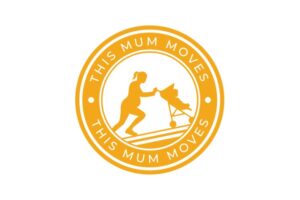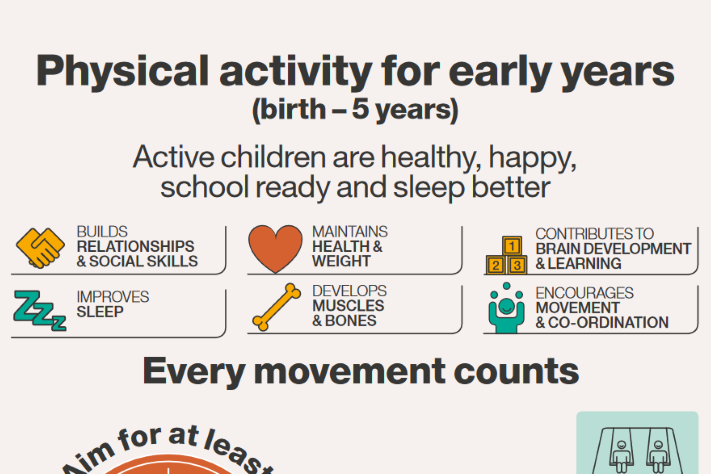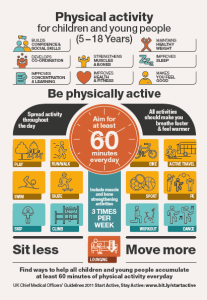
More women* across the nation are set to benefit from being physically active during and after pregnancy, as ukactive and Sport England announce the results of the This Mum Moves pilot project and plans for its expansion.
This Mum Moves was created to support women to continue to enjoy and benefit from an active lifestyle ‘during pregnancy and after childbirth’ by enabling and upskilling healthcare professionals to confidently promote and provide advice around physical activity within routine pre and postnatal care.
ukactive launched the project in 2018 alongside several national partners, supported by National Lottery funding and Sport England.
During a three-year pilot, This Mum Moves worked with NHS trusts in Sheffield, Sunderland, Plymouth, Cambridge, and Bexley, to deliver training to more than 400 healthcare professionals.
An independent evaluation by the Centre for Sport, Physical Education and Activity Research at Canterbury Christ Church University showed that following This Mum Moves training:
- 85% of healthcare professionals were ‘committed’ or ‘highly committed’ to apply what they had learned into practice.
- 81% felt confident to start a conversation with women about physical activity during and after pregnancy.
- 76% of healthcare professionals ‘often’ or ‘always’ provided physical activity advice to women during and after pregnancy.
- 97% of healthcare professionals said they would recommend This Mum Moves training to a friend or colleague.
Following the piloting of training materials and resources, ukactive and Sport England have established a sustainable model which now will be taken forward by project partners, The Active Pregnancy Foundation and the Institute of Health Visiting.
The offer will also be expanded to wider workforces, including fitness professionals, recognising that conversations by healthcare professionals have the potential to open doors to discussion across organisations, and in consultation with other professionals.
Huw Edwards, CEO of ukactive, said:
“We want to ensure every pregnant woman and new mum has access to support about being active during this time, so it’s great to know This Mum Moves is helping healthcare and fitness professionals to deliver it.
“Our findings show This Mum Moves is helping to build the knowledge, confidence and motivation for healthcare professionals to have these conversations with women, so that more mums feel supported to be active for the health of mother and child.
“We are excited to see the Active Pregnancy Foundation and Institute of Health Visiting grow this model and reach more communities.”
Frances Drury, Head of Activation at Sport England, said:
“During a period of enormous change – like pregnancy and becoming a new mother – being active is very important, as it boosts mental and physical health at a time that can be very challenging.
“Physical activity can be an effective means of reducing rates of postnatal depression among other conditions. But we know that 74% of pregnant women and new mums have safety concerns in relation to being active – and 64% would be encouraged to continue or to take up activity if they were given guidance or encouragement by a healthcare professional.
“We are delighted that This Mum Moves is expanding to enable more healthcare professionals to support more pregnant women and new mothers.”
Dr Marlize De Vivo, CEO of The Active Pregnancy Foundation, said:
“Physical activity is not simply a tick box at the antenatal booking appointment, it is a means to an end, with the potential to address many pregnancy problems including gestational diabetes, excessive weight gain, high blood pressure problems, and postnatal depression, to name but a few.
“This will not only reduce costs and increase capacity within the maternal care system but also improve women’s quality of life.
“While healthcare professionals have a crucial role in the dissemination of information, we also know that engaging women in active lifestyles requires systemic change and interprofessional collaboration.
“We are therefore excited to be involved in upscaling this project and rolling the offer out to other workforces, including allied and fitness professionals.”
Victoria Gilroy, Head of Projects and Evaluation at the Institute of Health Visiting, said:
“Physical activity has significant benefits for women and their families’ quality of life. Working together to raise awareness in the wider workforce, with those who come into contact with pregnant women and new mothers, is key to ensuring that consistent and timely advice can be offered at all contacts.
“We are delighted to be able to continue developing this important work in partnership with The Active Pregnancy Foundation.”
To find out more about This Mum Moves programme click here.
*Where referring to ‘women’ and ‘mothers’, this should be taken to include people who do not identify as women but who are pregnant.
Upcoming Training Dates:
- 24 May 2022, 09:00-13:00
- 21 September 2022, 09:00-13:00
- Cost: £150.00 (no VAT)
This Mum Moves (TMM) Ambassador Training is a half-day training event that will equip professionals with the knowledge, skills, and confidence to discuss physical activity during pregnancy and after childbirth.
The training is delivered live via Zoom and will provide learners with access to a digital toolkit to support conversations and further learning. It will also provide participants with the resources to facilitate the promotion of physical activity, including cascade and promotional materials. This training has been accredited by the CPD Standards Office and equates to 3 CPD points.










